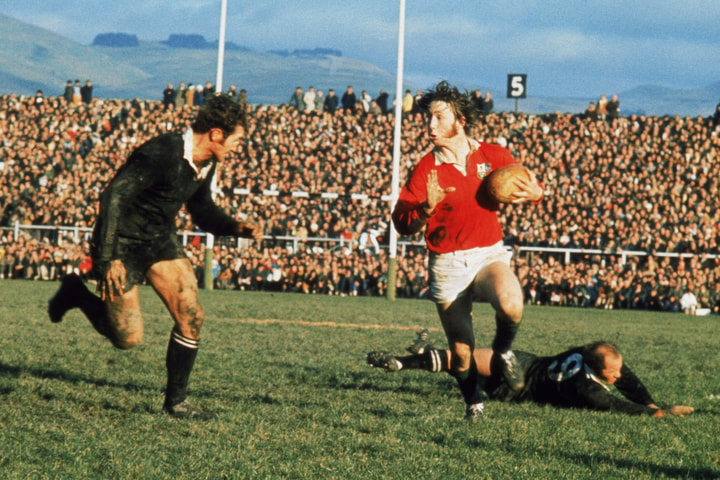
18 January 2026


On 22nd May 1941, Kit Tanner lost his life after rescuing 30 people from the wreckage of HMS Fiji. Here Malc King of the Gloucester Rugby Heritage archive pays tribute to a remarkable man.
Christopher Champain Tanner was born on 24th June 1908 in Cheltenham. He was a wing, who was a wonderful sight when in full flow - those who saw him perform eulogised about his runs as "one of the loveliest sights ever seen at Kingsholm". Indeed, rather than kick, which he did rather clumsily, he would throw the ball from one wing to the other with deadly accuracy. His contemporaries say he "scored many brilliant tries, and was a great favourite with the crowd" and "as an aggressive wing, his superior was not seen at Kingsholm in the 1932-33 season, and all his exhibitions had the hall mark of class".
Kit was then at his peak - he had won a first cap for England against Scotland in 1930, but then won 4 more in 1932 against Ireland, Wales, South Africa and Scotland, scoring a try in the last of these. Although he played in 2 England trials in 1933-34, he never again made the England team. He was one of 3 clergymen playing for Gloucester in the 1930s; he was curate at St Mary de Lode church, and is commemorated there.
On the outbreak of WW2, Kit volunteered as a naval chaplain, and was posted to the cruiser, HMS Fiji. She joined the Mediterranean Fleet, and was tasked with preventing a German seaborne landing on Crete. The Fleet came under heavy attack from the Luftwaffe, HMS Gloucester was sunk and Fiji deployed much of her lifesaving equipment to save her crew. Fiji suffered many hits by bombs, and eventually the order to abandon ship was given. Kit supervised the removal of all 60 wounded men from the sick bay, and then jumped into the sea. After several hours in the water, trying to help his fellows, salvation arrived in the form of HMS Kandahar, and Kit was hauled aboard. However, there were still men in the sea, too exhausted to grasp the ropes lowered to them. So, Kit repeatedly dived back into the sea, and was responsible for saving the lives of close to 30 men, before he himself succumbed of exhaustion on 22nd May 1941. He was posthumously awarded the Albert Medal for saving life at sea.
This article was originally posted on the Gloucester Rugby Heritage archive and can be accessed here.
About the Author - Malc King is Chairman of the Gloucester Rugby Heritage CIO, a charitable organisation run by volunteers and supported by Gloucester Rugby and Gloucestershire Archives. Malc's book 'Kingsholm, Castle Grim, Home of Gloucester Rugby' is available here.
Visit our website, book your visit and follow us on Facebook, Twitter and Instagram.